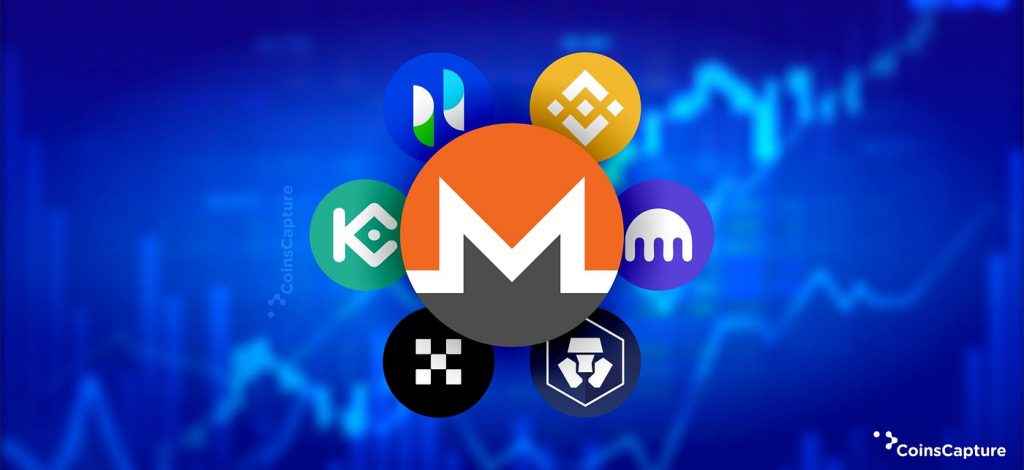Monero (XMR) has established itself as one of the leading privacy-focused cryptocurrencies in the digital asset space. Known for its robust anonymity features and fungibility, Monero has attracted a significant following among cryptocurrency enthusiasts who prioritize financial privacy. This article will explore the various aspects of XMR exchange, including methods, considerations, and best practices for trading Monero.
Understanding Monero (XMR)
Before delving into the exchange process, it’s crucial to understand what makes Monero unique:
- Privacy: Monero uses ring signatures, stealth addresses, and RingCT (Ring Confidential Transactions) to obfuscate transaction details, ensuring sender, receiver, and amount privacy.
- Fungibility: Unlike Bitcoin, where coins can be tainted by their transaction history, all Monero coins are indistinguishable from one another, making them truly fungible.
- ASIC-resistant: Monero’s mining algorithm is designed to be ASIC-resistant, promoting a more decentralized network of miners.
- Dynamic block size: This feature allows the network to adapt to changing transaction volumes, ensuring consistent performance.
Methods of Exchanging XMR
- Centralized Exchanges (CEXs)
Centralized exchanges are the most common method for trading XMR. Popular platforms include:
- Binance
- Kraken
- Huobi Global
- Bitfinex
Pros:
- High liquidity
- User-friendly interfaces
- Fiat on-ramps available
- Advanced trading features
Cons:
- Require KYC verification
- Custodial (exchange holds your funds)
- Privacy concerns due to data collection
Process:
a) Create an account and complete KYC
b) Deposit funds (crypto or fiat)
c) Navigate to the XMR trading pair (e.g., XMR/BTC, XMR/USD)
d) Place a market or limit order
e) Once executed, withdraw XMR to a personal wallet
- Decentralized Exchanges (DEXs)
While less common for XMR trading, some DEXs support Monero:
- Bisq
- AtomicDEX
Pros:
- No KYC required
- Non-custodial
- Enhanced privacy
Cons:
- Lower liquidity
- May be more complex for beginners
- Limited trading pairs
Process:
a) Download and set up the DEX software
b) Fund your account with cryptocurrency
c) Create a buy or sell order for XMR
d) Wait for a match and complete the trade
- Peer-to-Peer (P2P) Platforms
P2P platforms allow direct trading between individuals:
- LocalMonero
- Agoradesk
Pros:
- Direct transactions with other users
- Various payment methods available
- Can be more private than CEXs
Cons:
- Requires more trust
- May have higher prices
- Potentially slower process
Process:
a) Create an account on the P2P platform
b) Browse listings or create your own
c) Agree on terms with the counterparty
d) Complete the trade following the platform’s escrow system
- Instant Swap Services
These platforms allow quick exchanges between cryptocurrencies:
- ChangeNOW
- MorphToken
- Godex.io
Pros:
- Fast and convenient
- Often require no account creation
- Support many cryptocurrencies
Cons:
- Rates may not be as competitive
- Limited control over the exchange process
Process:
a) Select the currencies to exchange (e.g., BTC to XMR)
b) Enter the amount and recipient address
c) Send funds to the provided address
d) Receive XMR in your wallet
Considerations When Exchanging XMR
- Privacy
While Monero itself is private, the act of exchanging it can leave traces. Consider using privacy-enhancing techniques such as:
- Using a VPN when accessing exchanges
- Avoiding linking your identity to XMR transactions
- Utilizing atomic swaps when available
- Regulations
Be aware of the regulatory status of Monero in your jurisdiction. Some countries have strict regulations on privacy coins, which may affect your ability to trade XMR on certain platforms.
- Fees
Different exchange methods come with varying fee structures. Consider:
- Trading fees
- Withdrawal fees
- Network transaction fees
- Liquidity
XMR markets may have lower liquidity compared to major cryptocurrencies like Bitcoin or Ethereum. This can affect:
- Slippage on large orders
- Availability of trading pairs
- Speed of order execution
- Security
Prioritize the security of your XMR:
- Use reputable exchanges and services
- Enable two-factor authentication (2FA)
- Withdraw to a personal wallet after trading
- Consider using a hardware wallet for long-term storage
Best Practices for XMR Exchange
- Research thoroughly: Understand the pros and cons of different exchange methods and platforms before trading.
- Start small: If you’re new to XMR trading, begin with small amounts to familiarize yourself with the process.
- Use official resources: Refer to the official Monero website and community resources for recommended exchanges and wallets.
- Maintain privacy: Take advantage of Monero’s privacy features by using subaddresses for different transactions and avoiding address reuse.
- Keep records: While Monero transactions are private, it’s wise to keep personal records for tax purposes, depending on your jurisdiction.
- Stay informed: Keep up with Monero news, development updates, and regulatory changes that may affect XMR trading.
Conclusion
Exchanging XMR offers a unique set of challenges and opportunities due to Monero’s focus on privacy and fungibility. Whether you choose to use centralized exchanges, DEXs, P2P platforms, or instant swap services, it’s crucial to prioritize security, privacy, and compliance with local regulations.
As the cryptocurrency landscape evolves, so too will the methods and platforms available for XMR exchange. By staying informed, practicing good security habits, and leveraging the strengths of Monero’s technology, users can effectively navigate the world of XMR trading while maintaining the privacy and fungibility that make Monero a distinctive player in the cryptocurrency space.
Remember that while Monero offers enhanced privacy features, it’s ultimately the responsibility of the user to employ best practices in maintaining their financial privacy and security. As with any cryptocurrency investment or trading activity, conduct thorough research and consider consulting with a financial advisor to ensure your activities align with your personal financial goals and risk tolerance.


